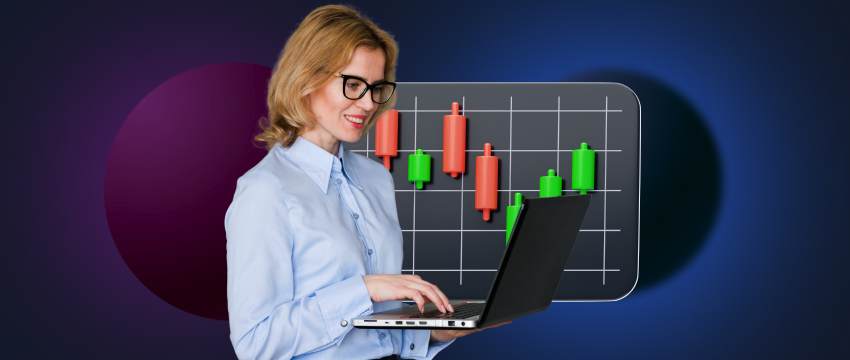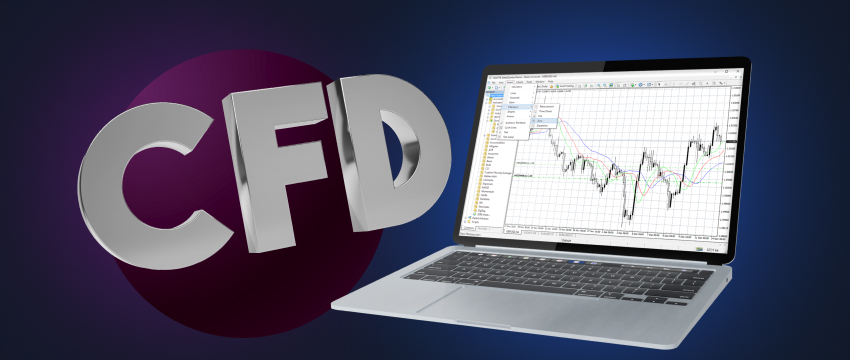Trading the financial markets offers the potential for making a profit utilising a range of different strategies. One of these strategies is arbitrage trading. It is a straightforward approach. Additionally, it is relatively uncomplicated once you have a good understanding of it.
Arbitrage trading involves simultaneously purchasing and selling the same asset in different markets to capitalise on mind price differences.
The concept is pretty simple, traders buy at a lower price in one market and sell at a higher price in another. In this way, the make a profit from the difference in prices between the two markets.
Arbitrage trading involves multiple asset types. These can include forex, commodities, shares, and more. As a result, it accommodates different traders. This includes those with varying levels of expertise.
Arbitrage trading is inherently lower risk because a price gap exists, and the likelihood of making a profit is high. However, as we’ve mentioned in our blog before, trading is risky, regardless of the strategy adopted. This makes the use of risk management tools absolutely critical.

How is arbitrage trading put into practice?
The process of engaging in arbitrage trading is not complex. Let’s take gold as the example. The metal trades on two different exchanges. On exchange A, it is priced at $1,700 per ounce. On exchange B, it is priced at $1,800 per ounce. In this case, an arbitrage trader would likely purchase the gold on exchange A.
Then, they would sell the gold on exchange B. Theoretically, the trader would make a $100 profit. This profit is the difference in price between the two exchanges.
The goal is to enter and exit positions rapidly before the price gap closes. Price differences don’t tend to last for extended periods of time so leveraging the opportunity as it arises is key.
Various forms of arbitrage trading
Different types of arbitrage trading exist, each with their own traits:
- Simple arbitrage is without doubt the simplest form of arbitrage trading, as seen in the example above. It merely involves the attempt to profit from price differences between two markets.
- Statistical arbitrage: uses mathematical models and algorithms to spot differences in prices. Statistical arbitrage uses statistical analysis to help traders identify mispriced financial instruments. This allows them to speculate and enter or exit trades that have the potential to generate profit from the mispricing. Traders often employ statistical arbitrage in high-frequency trading, using automation to execute a large volume of trades in a very short period.
- Triangular arbitrage: this form of arbitrage trading is seen mostly in the forex market. It is where the trader finds price differences in the exchange rate between 3 different currencies and attempts to buy and sell them in a certain sequence to make gains.
- Merger arbitrage: this strategy, also called risk arbitrage, refers to the buying and selling of stock of two companies that are parties to a merger & acquisitions.
Characteristics of an arbitrage trader
Arbitrage traders usually possess distinct characteristics or commonalities to cope with the speed of arbitrage trading.
- They have the ability to think quickly, make decisions at the click of the fingers, and execute trades at an incredibly fast pace. This also requires an extraordinary attention to detail to be able to spot even the smallest price discrepancies across different markets.
- They have the time to monitor the markets, and more specifically price fluctuations. As we’ve already mentioned, price gaps can close rapidly, lasting only a few seconds or minutes. If the trader is unable to cope with this speed, they’ll likely make use of automated systems to execute the necessary trades for them.
- Arbitrage traders usually possess some form of technical expertise to adopt automated systems to handle their trades. Remember, even automation requires some human intervention so knowing how to best utilise technology is key to increasing your potential for success.
- In addition to technical knowledge, arbitrage traders typically understand how different markets or exchanges operate. Regardless of their choice of asset, be is forex, stocks, indices, commodities, staying informed about the nature of each asset class is vital to making informed trading decisions.
- Arbitrage traders are also likely to possess strong analytical skills to be able to monitor the markets and prices properly, particularly during periods of volatility.

What are the risks involved in arbitrage trading?
While arbitrage trading is considered low risk, risks still exist with this approach.
- Arbitrage trading typically involves executing multiple trades almost simultaneously. An inability to keep up with the pace required to enter and exit large volumes of positions may likely see prices gaps close before you’ve had the chance to complete the trade. It is for this reason that arbitrage traders may opt for automated systems to limit lost opportunities. However, even in this instance, system failures or technical glitches can lead to lost profits. Caution is advised, regardless of how you choose to implement the strategy.
- Secondly, arbitrage trading is also susceptible to liquidity risk as slippage may occur. This makes it challenging for a trader to close positions timeously, potentially resulting in loss of funds.
Although arbitrage trading is said to incur little risk, integrating risk management techniques into your overall trading plan is important. This includes measures like stop-loss orders, take-profit orders, position sizing, and portfolio diversification.
Furthermore, following a trading plan diligently is also key in keeping you disciplined and focused. The plan should include your objectives, risk management tools, the level of risk you wish to take on, and budget.
Finally, as an arbitrage trader, you may want to consider using real time data feeds to monitor price fluctuations, as well as ensure that your internet speed is fast and connection reliable and stable.
Engaging in ongoing education
As with any other form of trading, learning all that you can about arbitrage trading is key before embarking on your trading journey. Learning comes in many different forms in the trading world.
The internet offers a wealth of trading-related educational resources that provide an abundance of knowledge and information.Your broker is also likely to provide you with material to learn more about this form of trading.
Brokers typically provide their traders with resources like blogs, podcasts, webinars, ebooks, videos, trading courses, seminars, and more.
Additionally, you may want to consider joining online community forums through which you can engage with global traders and share ideas, tips, insights, and concepts.
Another great way to boost your trading skills is by signing up for a demo trading account and practice your arbitrage trading strategy.
Using a simulated trading environment, you can execute trades using virtual money and assess outcomes. As you build in confidence and expertise, you’ll also have the peace of mind that your own money won’t be at risk.

Trading avec T4Trade
T4Trade est un courtier international populaire qui compte des clients dans le monde entier. Le courtier offre un support client multilingue de premier ordre, 24 heures sur 24 et 5 jours sur 7, des plateformes à la pointe de la technologie et des conditions de trading flexibles.
T4Trade is also a great go-to resource for traders looking to learn more about forex trading in a user-friendly way. A variety of videos, podcasts, eBooks, webinars, and videos-on-demand are curated by in-house specialists, catering to all types of traders.
Also traders can choose from a wide range of trading instruments across 6 asset classes, and enjoy flexible leverage, competitive spreads, fast trade execution and seamless deposit and withdrawal options. Traders can also choose from multiple trading accounts that best suit their needs and individual preferences.
CLAUSE DE NON-RESPONSABILITÉ : Ces informations ne sont pas considérées comme des conseils ou des recommandations d'investissement, mais plutôt comme une communication marketing.





